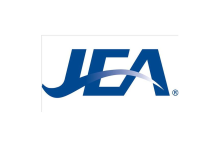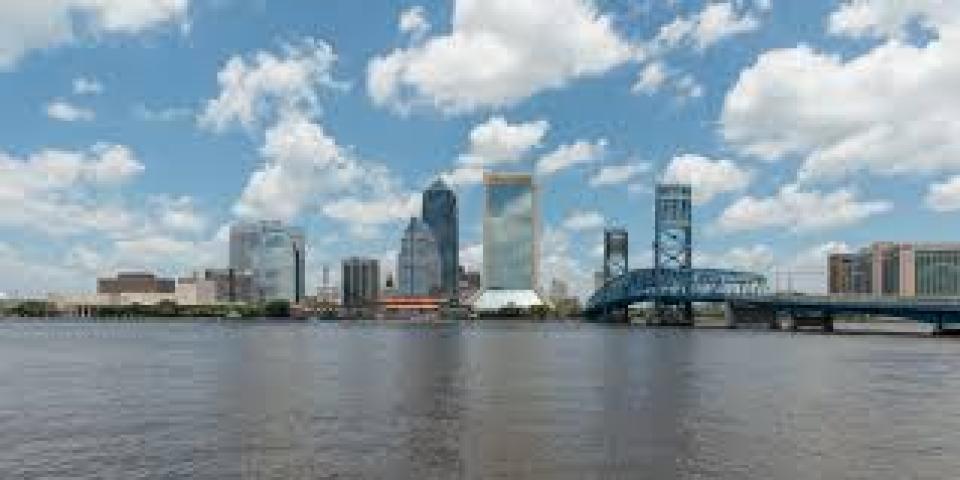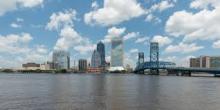
Fast, affordable Internet access for all.

Is a major metropolitan Fiber-to-the-Home (FTTH) network on the horizon for one of the Sunshine State’s most populous cities?
Longtime Jacksonville, Florida (pop. 890,000) resident Eric Geller is spearheading a citizen-led effort to rally residents and officials around a vision that would catapult Jacksonville into the fiber-connected frontier of Internet access and reinvigorate the economy of a city that was once known as the "Bold New City of the South."
As an IT consultant and former public policy research analyst, from Geller’s tech-savvy perspective the key is for the city’s utility company, JEA, to move beyond providing electricity, water, and sewer services and expand into building the necessary Internet infrastructure that would give all Jacksonville residents access to reliable and truly high-speed connectivity.
“Nationally, it’s been well accepted that we are at a point where the Internet is absolutely mandatory. Every business and home has to be connected,” Geller said in a recent interview with WJCT Radio, noting how the pandemic has made it clear that universal access to broadband is nearly as important as running water and electricity.
JEA’s Dark Fiber Infrastructure
If it’s a pipe dream, it’s one with light at the end — if Jacksonville residents can first see and appreciate all the dark. That is to say, the city’s existing dark fiber network, or the unused capacity of the fiber optic cables JEA has already deployed and how it could be leveraged and lit up to serve as the backbone for a citywide FTTH network.
JEA already leases routes to businesses along its 500-mile fiber optic network spanning the Jacksonville metropolitan area, which includes all of Duval Country and parts of St. Johns and Nassau Counties. In fact, with all that underground (and overhead) fiber already in place, Jacksonville can boast of having “more fiber in the ground than any city in Northeast Florida,” much of it passing through vital commercial and industrial parts of the city.
In a recent op-ed published in The Florida Times-Union, Geller made the case for why JEA is well-positioned to deliver city-wide broadband.

“This (dark fiber) capacity is uniquely suited for building-out a municipal fiber system for Jacksonville. With capable new leadership and technical and support staff who are second to none, JEA has the capability to successfully deliver this massive project,” Geller wrote. “Significant pieces of the infrastructure are already in place. JEA’s leadership and financial staff are experts at navigating tough regulatory requirements.”
Inequitable Access
While in some instances citizen advocates for municipal networks do not themselves have access to high-speed Internet options, that’s not the case for Geller. “I have 300/300 (Megabits per second) AT&T fiber,” he told us this week. “But I live in an affluent neighborhood and am an outlier.”
And while he and other similarly situated Jacksonville residents have several high-priced Internet service options, that misses the point of community broadband networks. “Jacksonville is like nearly all municipalities in the U.S. in this regard. We have failed to get 100 percent penetration of fast, reliable and affordable Internet access,” he said, noting how paying far-off national corporations for Internet service does not bring the kind of economic multiplier effects and social benefits associated with community-owned networks such as has been well-documented in cities like Chattanooga.
What’s Next?
Although neither JEA officials nor the city council have officially proposed pursuing the construction of an FTTH network, Geller has been in contact with the city’s utility managers. He is hoping to convince the new leadership at JEA to carefully examine the possibility of building a citywide network, including how the city might pay for it with the help of federal funds and the potential for a public-private partnership. He has also reached out to the Jacksonville City Council President’s office.
In the meantime, Geller has set up a web page to be an eventual rally point for citizen engagement and to disseminate information on the progress of the push for a municipal broadband network in Jacksonville.
“I’m not the first person to have brought this to the public’s attention in Jacksonville,” he said. “But the time now is ripe.”
Inline image of Jacksonville skyline from Wikimedia user DXR via Creative Commons Attribution-Share Alike 4.0 International

